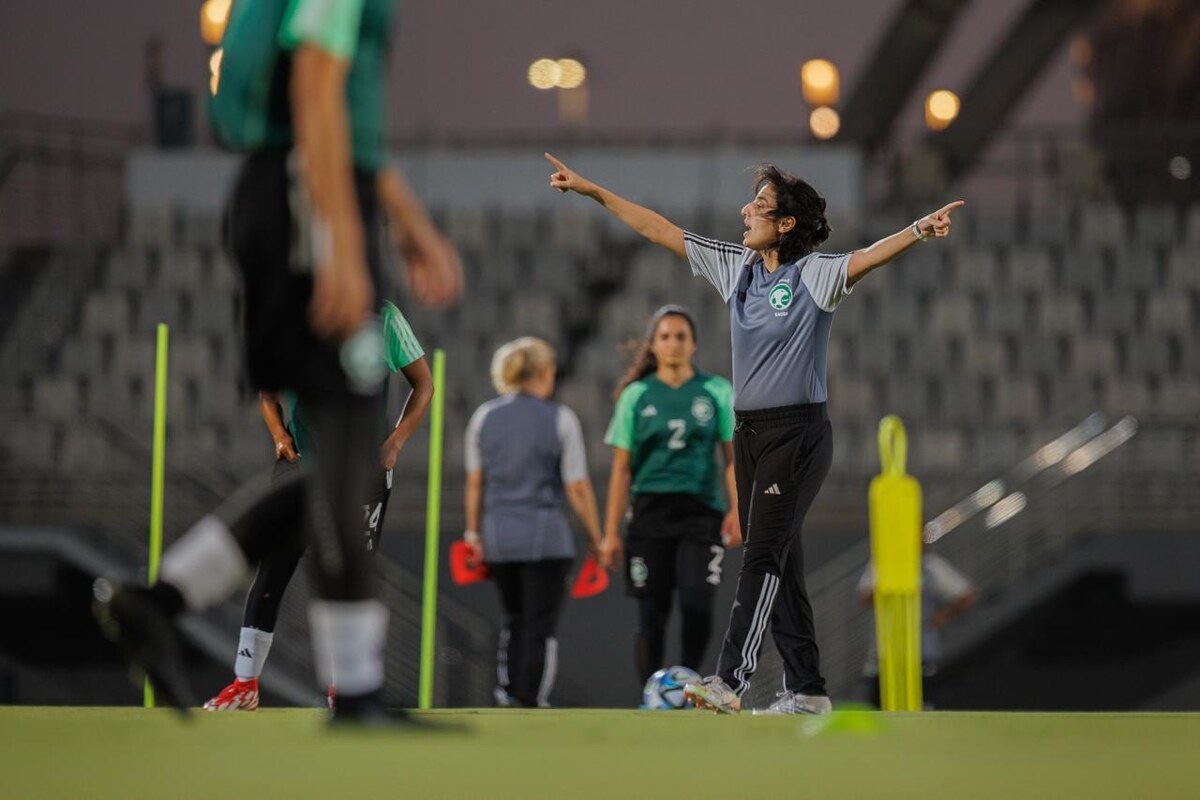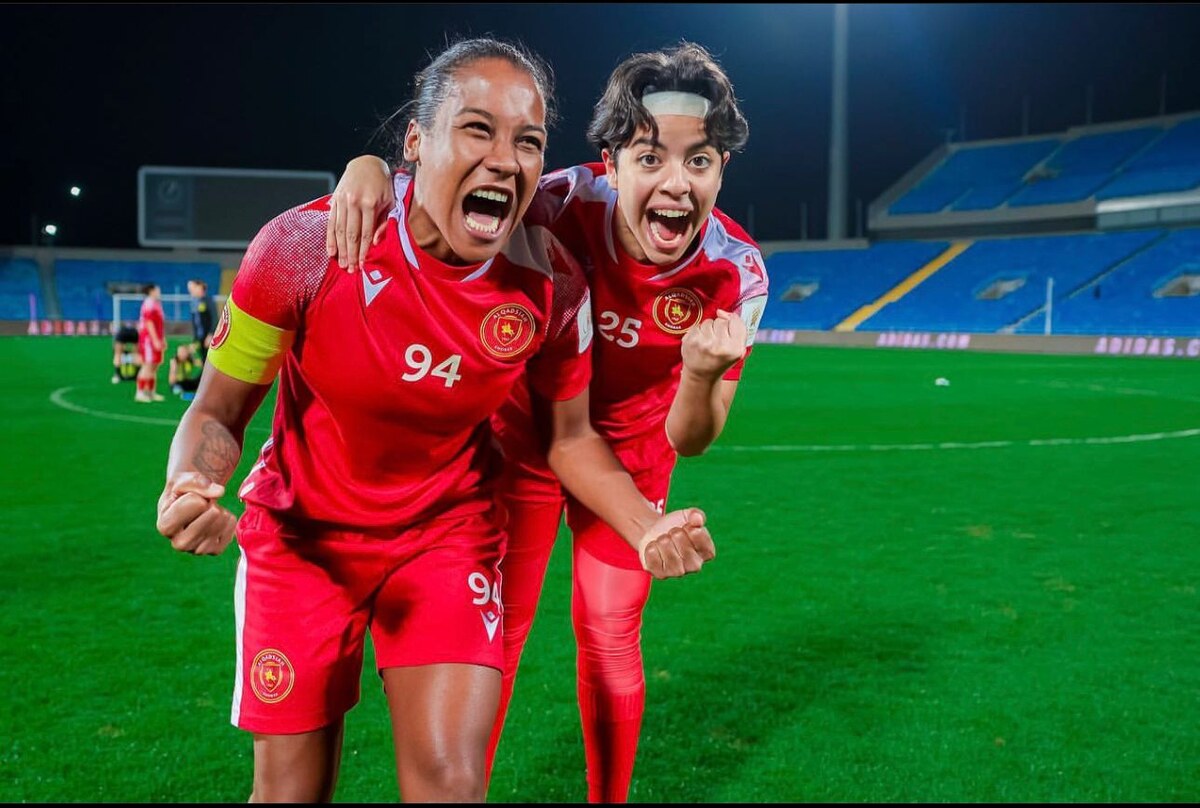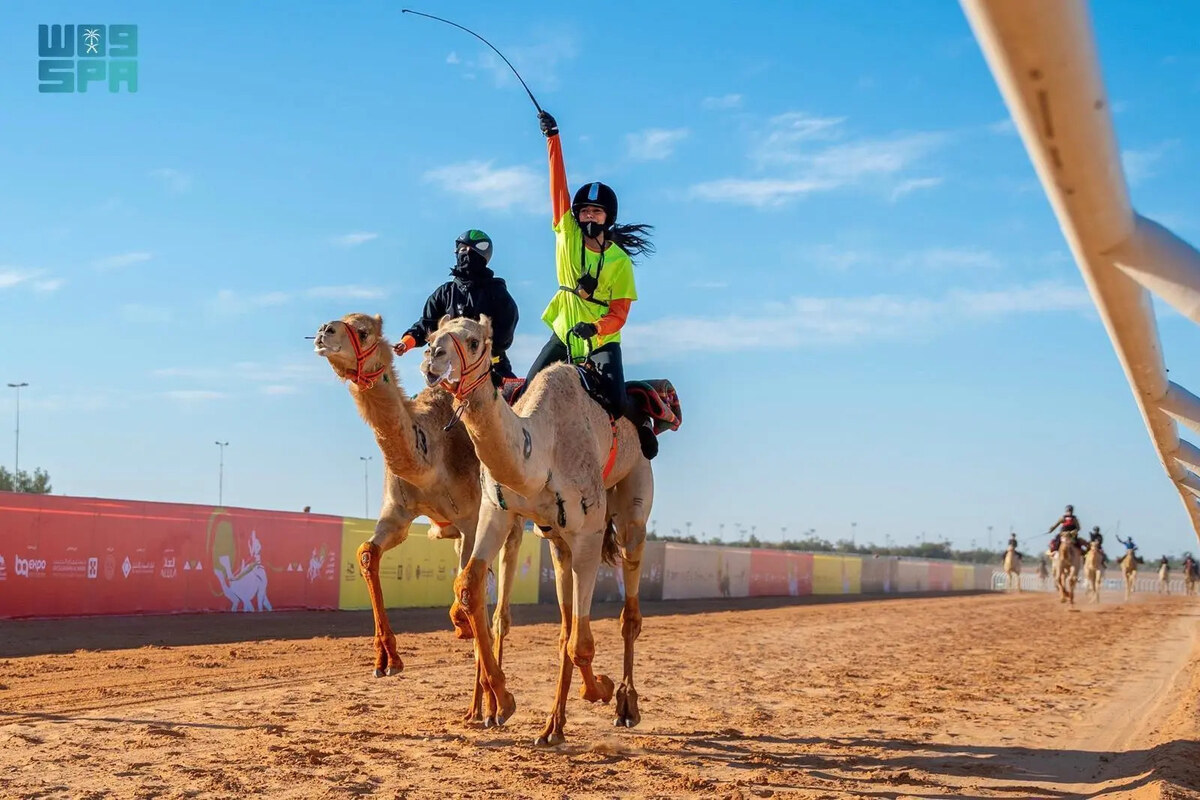RIYADH: Social reforms have driven a significant transformation in Saudi women’s football in recent years, broadening the sport and offering new opportunities for players.
Female footballers once played in the shadows, honing their skills indoors, and longing for the opportunity to compete openly.
Now, just six years after the launch of the Kingdom’s Vision 2030 reform program, they proudly represent a country that has a thriving women’s league and hosts international tournaments, including the West Asian Football Federation Women’s Championship.
Dona Rajab, assistant coach of the Saudi women’s national team, remembers a time when women had to create their own opportunities to train together.
Women played football in Saudi Arabia as early as 2004 in cities such as Jeddah, Dammam, and Riyadh, she said. “It was not made public, but it still happened.”
Before recent social reforms, it was difficult to even find a field on which to play.
In 2016, Rajab joined a group of young women playing football in Gold’s Gym. Within a year, the premises closed its outdoor area for renovations, leaving the players searching for another location.

Dona Rajab, Assistant Coach of the Saudi Women’s National Team. (Supplied)
“Unfortunately, not many football fields at the time would rent to girls, and we were rejected everywhere.”
After repeated rejections by football field owners, Rajab and the group finally received a “yes.”
“One day, the owner of one of the fields supported us playing football, and let us rent one of his fields with conditions. We didn’t care, we just wanted to play.”
Rajab quickly saw the talent and potential of these young women.
“I took the initiative to coach these girls with the knowledge I had as a player.”
As time passed, Rajab noticed more girls were interested in the game and the numbers at each at practice kept increasing.
“I got excited, and that is when the Storm team began in 2017.
“As we played friendly matches at times with some other girls, I got even more excited and started to care more about coaching and took the step of getting my coaching license.”
A lot of the young women who started their careers with the Storm are now playing in the Premier League and national team.
“I am honored and proud of each girl who worked hard and finally started to see their dreams come true. And that’s all I ask,” Rajab said.
“Since I got the chance as a child and young adult to play in the US, all I wanted was for these girls is to have the chance. With the support of our country, many have fulfilled their dreams.”
For years, Saudi women showed remarkable determination, patiently waiting for their moment to shine. That time arrived in 2018, marking a significant turning point in women’s sports in the Kingdom when a new law permitted women to attend football matches in stadiums.
“The impact on women’s careers in football with the support of government authorities was great. It created opportunities not just as players, but in different departments such as management, media, coaching, and even in education,” Rajab said.

Dona Rajab, Assistant Coach of the Saudi Women’s National Team. (Supplied)
“It is an amazing feeling to know that women around the Kingdom are participating in football, and are part of the growth of the game. Watching young girls being influenced by the game makes me want to work harder to keep developing the game in Saudi Arabia.”
In 2019, the Saudi Arabian Football Federation established a women’s football department. Since that milestone, support for female footballers has increased, leading to the formation of the women’s national football team in 2021, which played its first official international friendly match in February 2022.
Referring to the first international women’s football tournament held in the Kingdom in 2023, Rajab said that “being part of a competition for the first time as a team in history is something indescribable in words.
“The emotions, efforts, and hardship during that time can’t be explained. We took it day by day, game by game, and did our best to achieve the goal we wanted, which was playing the game.”
She said the tournament had a major impact on women’s football today. “As you can see, more girls are interested in the game and families are more supportive.”
Reflecting on her accomplishments, Rajab said: “Being where I am today is an honor — watching talents grow and thrive to be better and stronger each day.”
Majd and Najd Alotaibi are sisters who play football professionally in Saudi Arabia and are members of the women’s national team.

Najd Alotaibi, Al Qadsiah player (right). (Supplied)
Their passion for football was supported from a young age by their father, Fahad, a former player for Al-Tai.
“I wouldn’t have made it this far without my family’s support, which is something I’m very grateful for. My biggest inspiration is my dad. He’s a big part of my journey and I couldn’t have done it without him. This is only the beginning of my journey,” said Majd, 17, who plays for Al-Hilal.
She described her pride at representing the Kingdom, saying: “Just knowing that I will be wearing my country’s name while in the Saudi national team gives me so much support and motivation.”
Najd, 18, plays for Al-Riyadh. She began playing football at the age of 7, and has “not looked back.”
“My country’s support was my biggest motivation. They have always provided many opportunities for me to grow and improve,” she said.

Majd Alotaibi from Al-Hilal and the Saudi women’s national team player. (Supplied)































